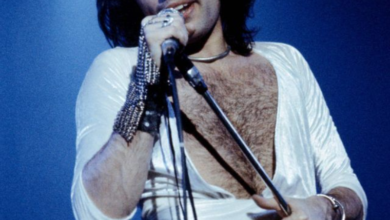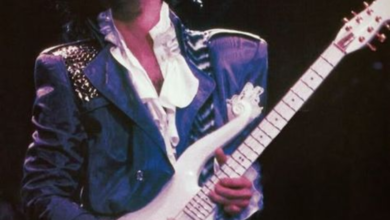The Movie Harrison Ford Wishes He Could Forget: ‘This Film Gets Worse Every Time’
OPINION: This article may contain commentary which reflects the author's opinion.
Harrison Ford has certainly earned his place as one of Hollywood’s most iconic figures. With unforgettable roles in Star Wars and Indiana Jones, he is the definition of a movie legend. But despite his status as a beloved and charming actor, not all of his career choices have left him feeling proud. In fact, Ford has been candid about one particular film he wishes he could forget—Blade Runner.
Released in 1982, Ridley Scott’s Blade Runner quickly became a touchstone for the science fiction genre. Adapted from Philip K. Dick’s novel Do Androids Dream of Electric Sheep?, the film was hailed as a masterpiece, blending a dystopian future with philosophical questions about humanity, identity, and technology. Ford starred as Rick Deckard, a Blade Runner tasked with “retiring” rogue androids, or replicants, in a neon-soaked future Los Angeles. Alongside Ford was Rutger Hauer as the complex replicant Roy Batty, and Vangelis’ iconic score, which perfectly captured the mood of the film.
Despite Blade Runner‘s status as one of the greatest films ever made, Ford has expressed deep regret over his involvement with it—particularly the voiceover narration he was contractually obligated to record. In fact, he once admitted that watching the film only made him dislike it more. During an appearance at the 2023 Academy Awards, while presenting the Best Editing category, Ford took a moment to air his grievances about the film in a somewhat humorous, yet revealing manner.
“I wish I could forget that movie,” Ford said, pulling out a crumpled piece of paper with notes he had jotted down after watching an early cut. “Opening too choppy. Why is this voiceover track so terrible? He sounds drugged. Were they all on drugs? Deckard at the piano is interminable. The flashback dialogue is confusing. Is he listening to a tape? Why do we need the third cut to the eggs? The synagogue music is awful on the street. We’ve got to use Vangelis. Up to Zora’s death, the movie is deadly dull. This movie gets worse every screening.”
Ford’s frustration with the film’s early cuts is particularly evident in his comments about the voiceover. “I was obliged by my contract to record that narration, which I found awkward and uninspired,” he admitted. It’s easy to see why Ford wasn’t thrilled with the voiceover. It often felt out of place, as if the film were trying to force an explanation for its complex story. Ridley Scott, the director, was also dissatisfied with the narration and removed it from the 2007 Director’s Cut, a version widely considered to be the definitive edition of the film.
But it wasn’t just the voiceover that bothered Ford. He also criticized several aspects of the film’s pacing and editing. He found the opening to be “choppy,” and thought some of the flashbacks and dialogue were confusing. Yet, despite his frustrations, Ford acknowledged the difficulty of editing a film. “The possibilities may seem endless, but the editor will work tirelessly, often in isolation, to make thousands of choices,” he said. “It’s an extremely difficult process, not for the impatient, not for the faint of heart.”
Interestingly, Ridley Scott, who has worked with numerous actors over his long career, once called Ford the “biggest pain in the ass” he had ever worked with. However, Scott also noted that their working relationship evolved over time. “He’ll forgive me because now I get on with him,” Scott explained. “Now he’s become charming. But he knows a lot, that’s the problem. When we worked together, it was my first film up, and I was the new kid on the block. But we made a good movie.”
Indeed, they did. Despite the rough start, Blade Runner would go on to become a defining moment in cinematic history. It would influence generations of filmmakers, shape the cyberpunk genre, and cement Ford’s legacy as not only an action star but a versatile actor capable of bringing depth to complex roles. Ford’s portrayal of Deckard, a morally ambiguous character wrestling with his own humanity, added another layer to his already impressive career, propelling him toward roles that would challenge him further as an actor.
So, while Ford may regret Blade Runner in some ways, it remains an essential part of his legacy—one that transformed him from a charming action hero into one of Hollywood’s most respected actors. It may not be the film Ford would have liked it to be, but it’s certainly one that will never be forgotten. And in the end, perhaps that’s the ultimate testament to its impact: a film Ford himself may wish he could forget, but one that will continue to resonate with audiences for generations to come.



